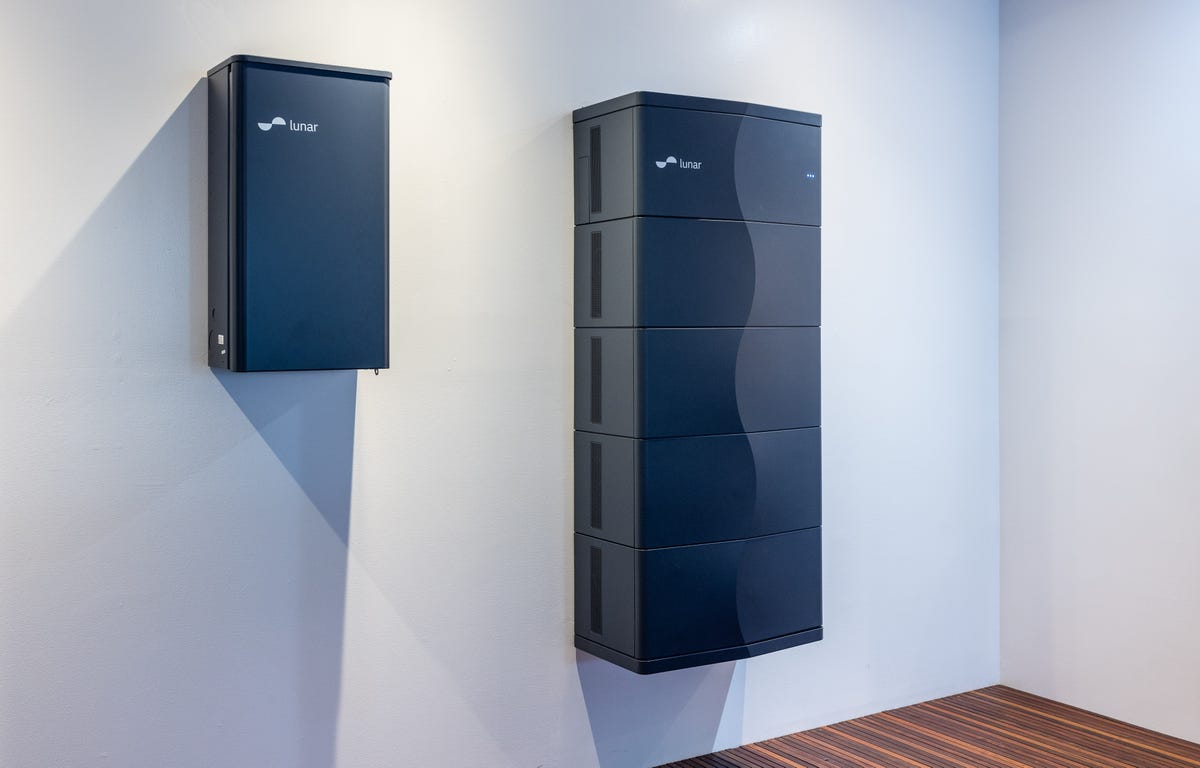We’ve all been there: The lights go out and the power company sends you a text message. A tree fell on a transmission line or the weather turned severe, and you’ll be out of electricity until people in hard hats can get things running again.
In 2021, the average American household experienced a little more than 7 hours of power outages, with the typical outage lasting 2 hours, according to the US Energy Information Administration.
When that happens, you probably find yourself wishing you had a backup source of power. For years, that’s typically meant a generator fueled by gasoline, propane, natural gas or some other fossil fuel. More recently, it might mean a set of solar panels on your roof and a battery in the basement or the backyard, a system that can set you back tens of thousands of dollars.
But what about just the big home battery by itself?
“For somebody who’s motivated to get a generator, they’re also motivated to get a battery,” Jigar Shah, director of the Department of Energy’s Loan Programs Office, told CNET.
At the renewable energy industry’s annual RE+ trade show in Las Vegas in September, we spoke to industry folks to figure out if a standalone home battery really can serve the function of a generator. Here’s what we found.
Can you get a battery without solar panels?
A home battery that provides something like 12 kilowatt-hours of backup electricity might cost you $10,000 or more, but that still pales in comparison to the cost of the battery and solar panels together, which might run you closer to $30,000. (Getting exact estimates can be difficult because these systems are designed for your specific home and needs, and because the solar industry isn’t super transparent about pricing.)
The Lunar Energy modular battery, shown here at right in a 20 kilowatt-hour configuration, takes over if the smaller bridge module detects a power outage.
Stephen Shankland/CNET
What batteries can do that generators can’t
Generators run when you need them, when the power goes out. Batteries don’t just have to be there as backups.
“Standalone energy storage can be used more economically than a backup generator, because it’s not a stranded asset during periods when there isn’t a power outage,” Rogge said.
Some states and utilities have what are called time-of-use rates, in which electricity costs more during times of peak demand (think the late afternoon and early evening) and less during times of lower demand (such as the middle of the night). “You can use energy storage to store energy when it’s cheaper and run off of your energy storage during peak hours,” Rogge said.
That function, known as energy arbitrage, helps in more ways than one. It can save you money — further increasing the value proposition of getting a battery. Instead of being something you buy for several thousand dollars and use only when the power goes out, it can save you money every single day.
But the fact that it’s being used every single day might itself be an advantage, said J. Stephen Pollock, chief revenue officer of Lunar Energy, which makes batteries. If a battery is functioning regularly, you’ll likely notice issues during a time you don’t really need it. With a generator, you won’t use it — or realize there’s a problem with it — until you need it.
A battery is also cleaner, meaning you won’t have to worry about fire risks, smells, noise or fumes as you would with a generator. And you don’t have to worry about maintaining a fuel connection, which sometimes requires people to test and certify them every year. “Buying a battery is cheaper than that,” Shah said.
Batteries also tend to have longer warranties than generators — typically 10 years or more, compared to three to five years for generators.
What generators can do that batteries can’t
The problem with batteries is that, if there’s nothing to charge them (like solar panels), you’re stuck with however much energy is in them when the lights go out. That might not be a whole lot. The average American home uses roughly 900 kilowatt-hours of electricity per month, or about 30kWh per day. A Tesla Powerwall, one of the most popular home batteries out there, holds up to 13.5kWh — less than half a day of normal energy use.
A generator, meanwhile, will keep producing electricity as long as it has fuel, and that could be a lot longer than a battery will last. So for extended outages, a battery without solar panels will be no use once it’s drained, but a generator will keep chugging.
The typical power outage isn’t a multi-day blackout: The average power outage in the US is about 2 hours, more than enough time for a battery. And a battery can last longer if it’s only used to power essential electrical loads instead of everything.



